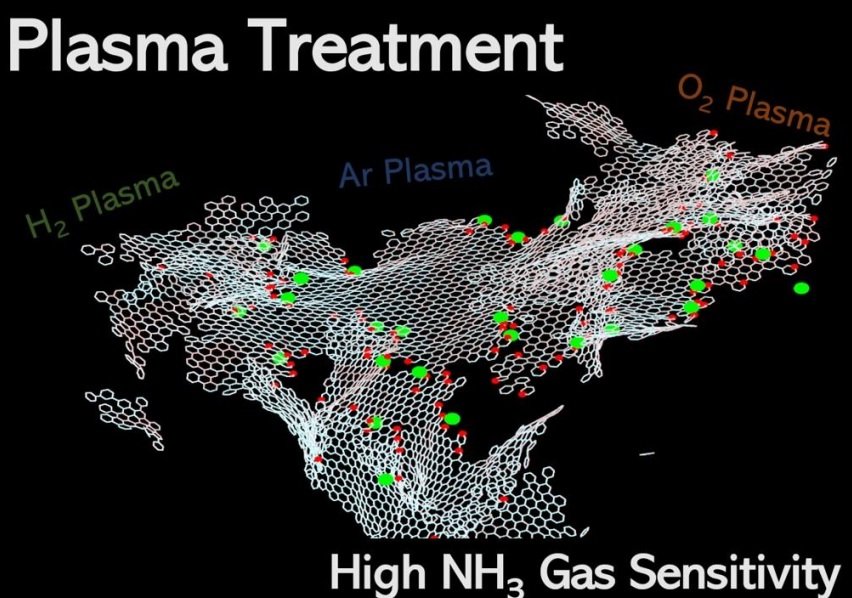Plasma Treatment Boosts Graphene’s Performance
Gas sensors are crucial for environmental monitoring and personal safety, yet conventional sensors often struggle with sensitivity, response time, and power consumption. Graphene, a highly conductive and thin carbon material, has gained attention for its potential to overcome these limitations.A research team led by Associate Professor Tomonori Ohba from Chiba University investigated how treating graphene with plasma in different gaseous environments - argon (Ar), hydrogen (H₂), and oxygen (O₂) - affects its gas-sensing capabilities. The study revealed that plasma treatment introduced structural and chemical defects that enhanced ammonia adsorption, thereby improving graphene’s sensing performance.
Key Findings
By applying plasma treatment, the researchers induced different types of modifications on graphene:- O₂ plasma treatment created oxidation sites, forming "graphoxide," which introduced carbon vacancies.
- H₂ plasma treatment led to hydrogenation, producing "graphane," with sp³-type defects.
- Ar plasma treatment generated a combination of carbon vacancies and sp³-type defects.
These structural changes played a significant role in enhancing graphene’s response to NH₃. The most notable improvement was observed in graphoxide, which exhibited up to a 30% change in sheet resistance when exposed to ammonia - far surpassing the performance of untreated graphene.
Toward Wearable Gas Sensors
While some irreversible changes in sheet resistance were observed after repeated exposure to NH₃, the functionalized graphene remained largely effective. “The results showed that plasma-treated graphene had superior NH₃ gas-sensing performance compared with pristine graphene,” said Associate Professor Ohba.Looking ahead, this research paves the way for the development of compact and wearable gas detection devices. “As graphene is one of the thinnest materials with gas permeability, the functionalized graphene sheets from this study could be integrated into everyday wearable devices, allowing individuals to detect harmful gases in their surroundings,” added Ohba.
Related tags: ammonia
